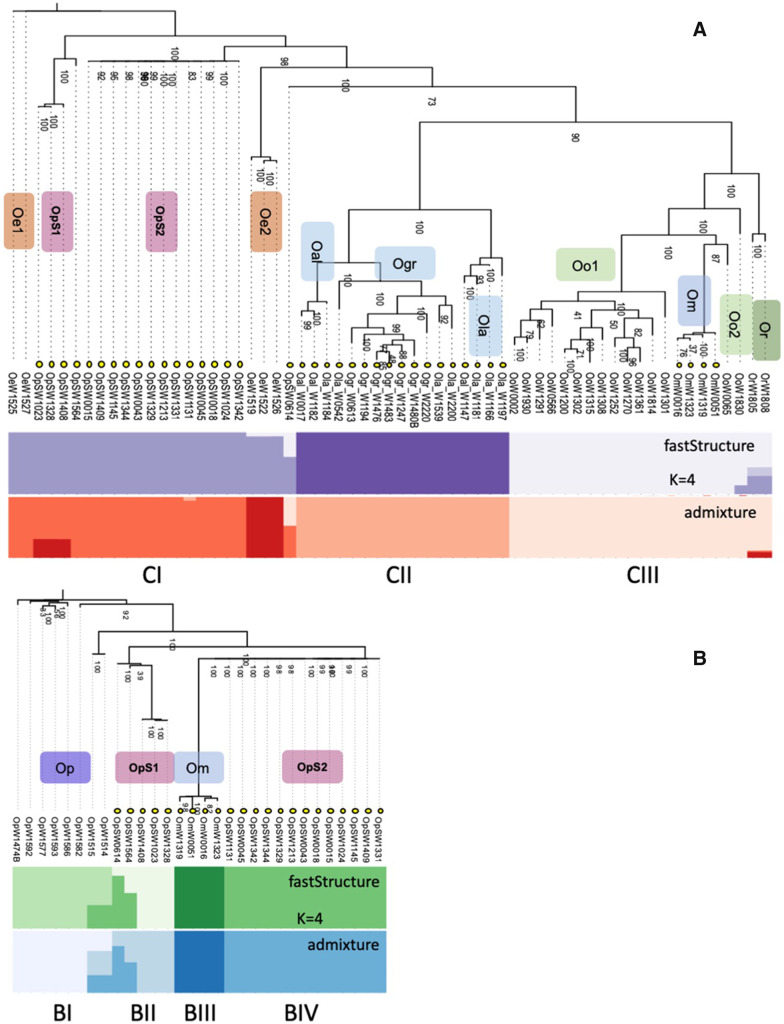Fig. 4.
—Phylogenetic and diversity analyses based on whole-genome SNPs identified by resequencing and mapping to the C genome and B genome reference sequences. Species group abbreviations are as follows: Oo1, O. officinalis group 1 (Malesian); Oo2, O. officinalis group 2 (S.E. Asian); Oe1, O. eichingeri group 1; Oe2, O. eichingeri group 2; Or, O. rhizomatis; Op, O. punctata (diploid); OpS1, tetraploid O. punctata (schweinfurthiana) group 1; OpS2, tetraploid O. punctata (schweinfurthiana) group 2; Om, O. minuta; Oal, O. alta; Ola, O. latifolia; Ogr, O. grandiglumis. Taxa labeled with yellow circles are allotetraploids. (A) Maximum-likelihood tree based on mapping of all Oryza C genome containing accessions to the O. officinalis reference. The procedure in Lee et al. (2014) was followed to obtain a representative SNP set and compute a maximum-likelihood tree. Colored bars indicate the group assignments obtained in fastStructure and admixture analysis with cluster number set at K = 4. (B) Maximum-likelihood tree based on mapping of all Oryza B genome containing accessions to the O. punctata reference. A representative SNP set and maximum-likelihood tree was obtained using the same procedure as for (A).

